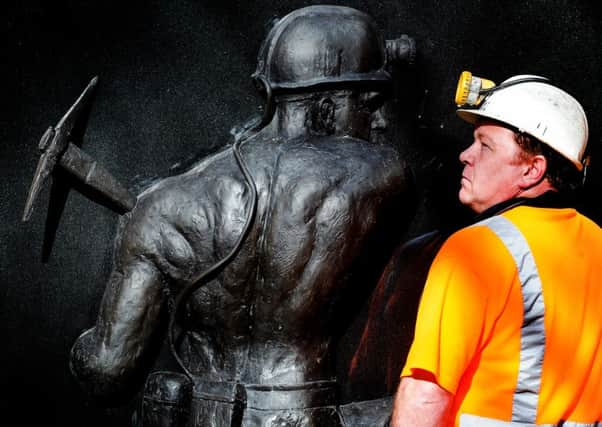End of deep coal mining era is poignantly marked by museum


Known locally as Big K, the North Yorkshire mine, shut in December 2015 and today poignant reminders of the last deep coal mine in the country were received by The National Coal Mining Museum for England, near Wakefield.
The museum has already accepted a memorial plaque from the colliery and a commemorative headboard from the last train to leave Kellingley on Christmas Eve 2015, was donated by DB Schenker Rail UK yesterday. The Kellingley Memorial was given to the museum earlier this year and it is now on public display.
Advertisement
Hide AdAdvertisement
Hide AdJonathan Lawton, the DB Schenker Rail UK driver of the last train service, presented the headboard. The occasion was particularly special for Mr Lawton as he is the nephew of the late Victor Lawton, who drove the very first train service from Kellingley Colliery in 1972.
Mr Lawton, said: “You could say that this rail service runs in my family and so I was very grateful to get the opportunity to drive the last train out of the colliery.”